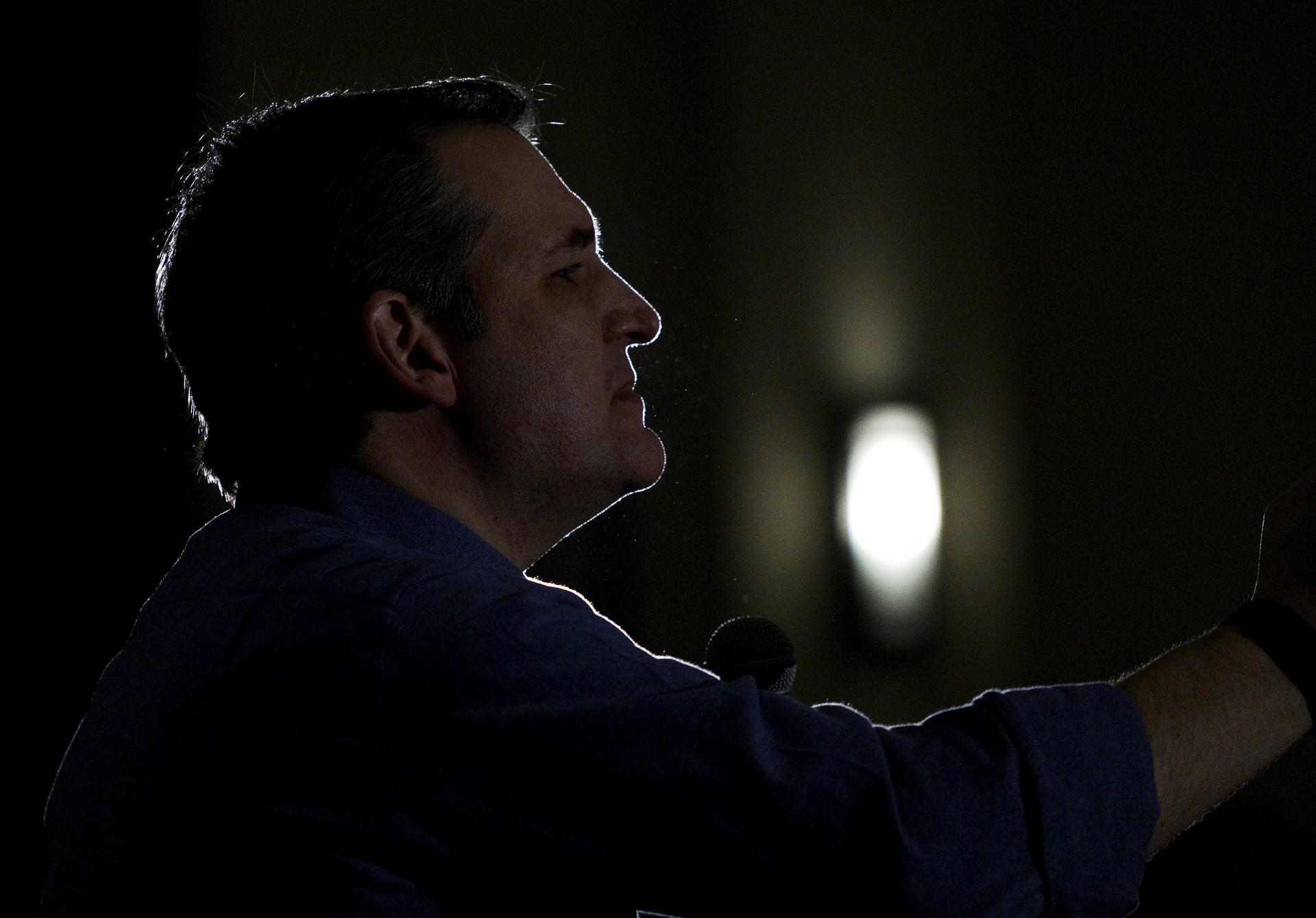What a President Cruz’s foreign policy might look like
US Republican presidential candidate Ted Cruz speaks at a pro-life rally and campaign event in Des Moines, Iowa, January 27, 2016.
The Iowa Caucuses are less than a week away, and the GOP’s two frontrunners — Donald Trump and Senator Ted Cruz — are in a statistical tie, according to the latest poll from Quinnipiac University.
What would happen to US foreign policy if one of these frontrunners won in November? For one, Cruz has promised to get aggressive with ISIS.
"We will carpet bomb them into oblivion,” Cruz said at a FreedomWorks summit in Iowa in December. “I don't know if sand can glow in the dark, but we are going to find out."
Would a hypothetical President Cruz make good on that promise? Victoria Coates, Cruz's foreign policy adviser, worked for Defense Secretary Donald Rumsfeld and former Texas Governor and GOP presidential candidate Rick Perry.
“It sounds very simple, but [Cruz is] approaching the world from the very clear perspective of what’s best for America,” Coates says. “He believes our nation is the greatest force for good on the planet, so preserving it and protecting it should be our priority, and that’s been a very disciplined practice of his.”
But do raucous comments about annihilating American enemies really help to protect US peace and security?
“I’m never going to apologize for working for a candidate who wants to be too mean to the terrorists,” she says. “That doesn’t seem to me really to be a downside.”
According to Coates, a hypothetical President Cruz wouldn't be too concerned about harming civilians in ISIS-held areas.
“Unfortunately, we are in a situation right now where we have an administration that has zero tolerance for any collateral damage,” she says. “War is a horrible, violent, messy business. One can be as humane as humanly possibly, and if one is going to successfully execute a military mission, there is going to be collateral damage. So I think what Senator Cruz is expressing is his willingness to do what is necessary to keep our country safe.”
In viewing the current fight against ISIS, Coates argues that the US must “change the rules of engagement governing our forces if we do want to be successful,” calling the Obama Administration’s strategy a “dismal failure.”
However, under the Obama Administration, about 90 percent of people killed in US-led drone strikes in Afghanistan over one five-month period were not “the intended targets,” according to The Intercept. Coates says it’s “a great mystery” why the Obama Administration would tolerate collateral damage in Afghanistan and Pakistan, but not in ISIS strongholds in Syria and Iraq.
“One thing that has been a concern for me about this administration is that they’ve almost fetishsized the use of drones,” she says. “Drones are a useful technology, and they can do all sorts of extraordinary things — they’re going to put lasers on them that can take out ballistic missiles. That’s fantastic, but they remain a tool — they are not a strategy.”
In addition, Coates says Cruz would roll back the Iranian nuclear deal. She says Cruz would overturn the historic accord “on day one” of his presidency.
“He’s been very clear over the last two years, really since September ‘13 … even before the infamous phone call between President Rouhani and President Obama, that we were starting out on the wrong foot,” Coates says.
Around the time of his marathon Obamacare filibuster that included a reading of Dr. Seuss’ “Green Eggs and Ham,” Coates says Cruz filed legislation that called for US hostages to be released, and for Iran to formally recognize Israel, before America reopened contact with Iran.
“For this administration, that came after — it was some sort of postscript to get the hostages out,” she says. “For me, that’s a pretty clear illustration of the differences of their approach. So, I think certainly it’s going to be a very heavy lift [to undo the Iran nuclear deal], but that doesn’t mean that he’s not going to do it.”
One of the rules of the Iranian nuclear agreement includes a provision that ensures that inspectors with the International Atomic Energy Agency will have daily access to Iran’s nuclear sites to ensure that the nation is only using the technology for peaceful means. International inspectors monitoring Iran have said that revoking the historic deal would likely restart the nuclear course Iran had been on before the accord was struck.
Despite this international agreement, Coates says she doesn't believe Iran has ever stopped trying to make a nuclear weapon. She also said she doesn't believe anything that Secretary of State John Kerry has said on the issue.
“I absolutely believe a number of things the Iranians have said, which is that they believe they have a right to enrich uranium; that they believe they have a right to ICBMs; that they believe they can keep testing them in defiance of the United Nations Security Council. I believe them when they say death to America; and I believe them when they say they’re going to wipe Israel off the map. All of those statements, which I believe, lead me to be extremely cautious about the agreement we’ve just concluded.”
This story first aired as an interview on PRI's The Takeaway, a public radio program that invites you to be part of the American conversation.
Every day, reporters and producers at The World are hard at work bringing you human-centered news from across the globe. But we can’t do it without you. We need your support to ensure we can continue this work for another year.
Make a gift today, and you’ll help us unlock a matching gift of $67,000!
